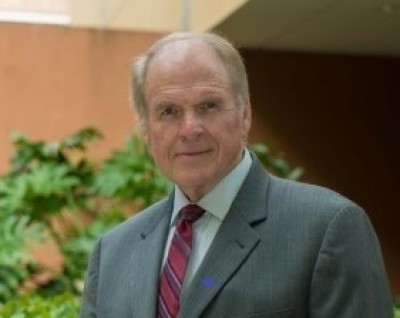God, the nations, and nationalism: Naive globalism (pt 3)
Nationalism, for some critics, is the grotesque distortion of patriotism. They believe it to be a form of solipsism, the ultimate of egoism and overblown pride in a nation that might believe itself to be the only geopolitical entity that matters.
This is certainly the case with unhealthy nationalism.
However, in an intensively competitive world where rivalries could quickly flare into global nuclear conflict, nations must have confidence they are strong enough to meet the challenges.

Sadly, because of disparities there will always be client states depending on alignments with strong states. Those protecting countries must have a strong belief in their own founding principles, and possess the means of defending not only themselves, but also those looking to them for cover.
Unhealthy nationalism takes over when the strong state sees the smaller as inferior. Symptoms of unhealthy nationalism include these:
- A view of the rest of the world with a sense of self-superiority resulting in the belief that interventionism is permissible to improve the weaker nations...
- A view of other nations with contempt, leading to a passion to destroy them.
Healthy nationalism characterizes a nation that recognizes its prosperity, freedom, and strengths as blessings from the Lord of all the nations, that the blessings compel a sense of stewardship, and that the gifted nation is to be a blessing to others in the global community.
Having worked in Washington and observed the geo-political situation from that perspective, I am certainly aware that this is idealistic. But if we allow that to stop us from embracing that higher perspective, we will cease aspiring.
“I will lift up my eyes to the mountains; from where shall my help come? My help comes from the LORD, who made heaven and earth,” says Psalm 121:1-2. The principle is not looking to the physical mountains for inspiration and guidance but looking higher.
The point is, look up... aspire to the highest.
This works in the policy realm, even on the geopolitical level. Colin Powell, a former Secretary of State and four-star General, said it eloquently to the World Economic Forum in 2003.
George Carey, who had served as head of the Church of England as Archbishop, addressed Powell about the United States as “the only superpower,” and the importance of distinguishing between “hard power” and “soft power.”
Said Carey to Powell: “Would you not agree ... that America, at the present time, is in danger of relying too much upon the hard power and not enough upon building the trust ... (that) makes human life valuable?”
Applause ensued.
Powell responded both as a diplomat and a military man:
“The United States believes strongly in what you call soft power, the value of democracy, the value of the free economic system, the value of making sure that each citizen is free and free to pursue their own God-given ambitions and to use the talents that they were given by God. And that is what we say to the rest of the world. . . There is nothing in American experience or in American political life or in our culture that suggests we want to use hard power. But what we have found over the decades is that unless you do have hard power – and here I think you're referring to military power – then sometimes you are faced with situations that you can't deal with... I mean, it was not soft power that freed Europe. It was hard power. And what followed immediately after hard power? Did the United States ask for dominion over a single nation in Europe? No. Soft power came in the Marshall Plan. Soft power came with American GIs who put their weapons down once the war was over and helped all those nations rebuild. We did the same thing in Japan... We have gone forth from our shores repeatedly over the last 100 years... and put wonderful young men and women at risk, many of whom have lost their lives, and we have asked for nothing except enough ground to bury them in... [1]
Now the applause favored Powell.
Globalism naively assumes that eliminating nations through the obliteration of boundaries will end destructive nationalism. Actually, this only makes the situation more dangerous. The Bible says that Antichrist’s ambition is to be the ruler of the world. Whether one believes the Bible or not, there will always be the threat of a global hegemon. This is a reason conservative Christians resist the globalist argument.
Yet the issue is spiritual — the kind of “god” people worship, the values, principles, worldview, the policy outcomes and international behaviors are crucial factors in the health of nations and their understandings of themselves in relation to others.
John Winthrop had this in his mind in 1630 when he laid out the vision for the Colony he would serve as governor: “There are two rules by which we are to walk one towards another: Justice and Mercy... we must consider (reflect upon and preserve) that we shall be as a city on a hill...[2]
In this age of the divisions of identity politics at home, and deepening seductions toward globalism as a solution to international rivalry and strife, may we find health and sanity in the highest vision of national character, destiny, and international interactions.
May we bless and encourage all who look upon us ... and to us.
[1] There is often confusion about where and to whom Powell was speaking, or if he even made the remarks at all. However, the quote here comes directly from the text supplied by the U.S. State Department. It can be found at U.S. Department of State: Excerpts From Secretary Powell's Response to George Carey. Italics added.
[2] Matthew 5:14-16



























